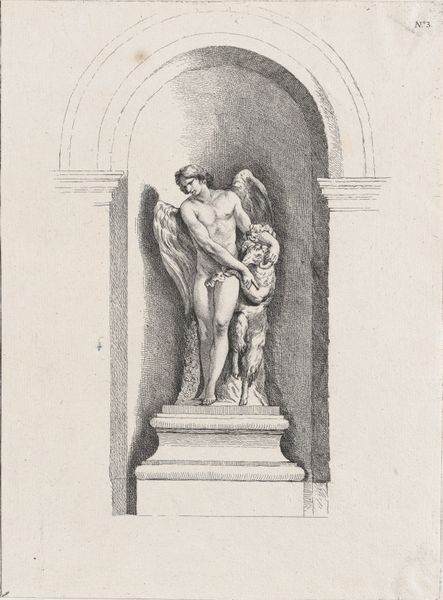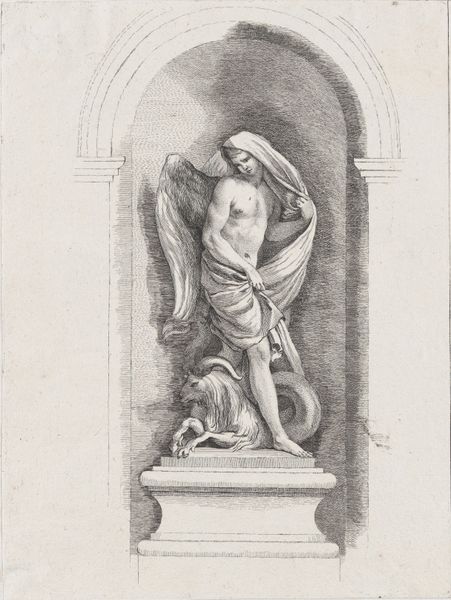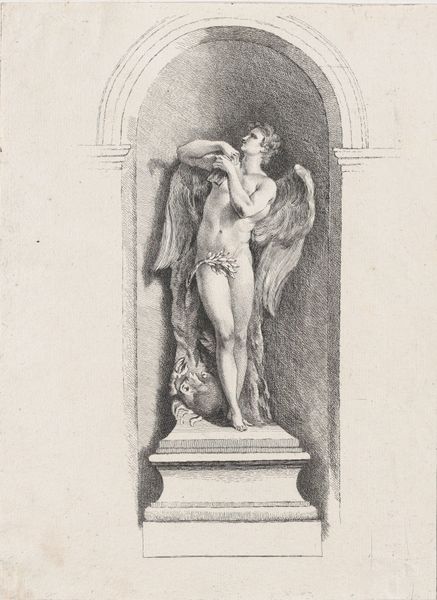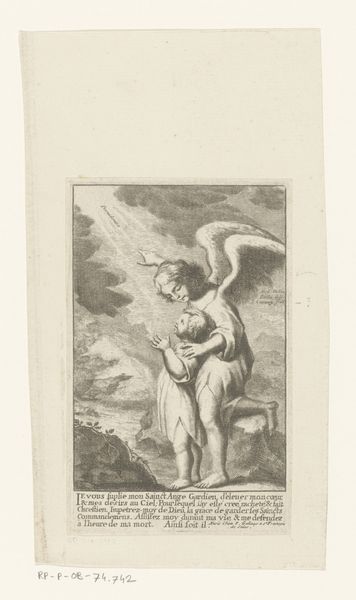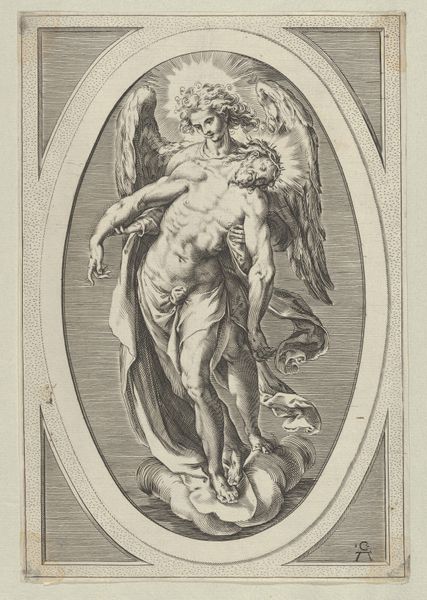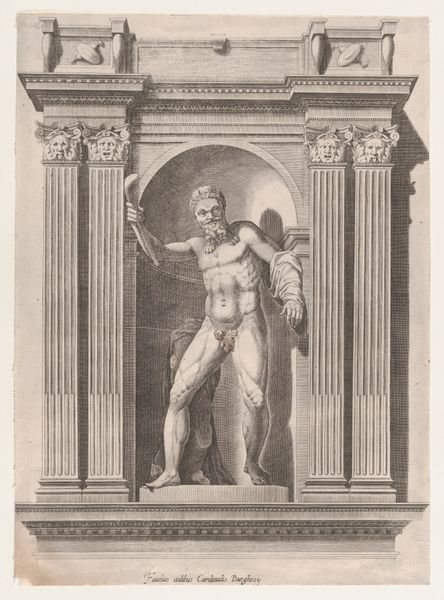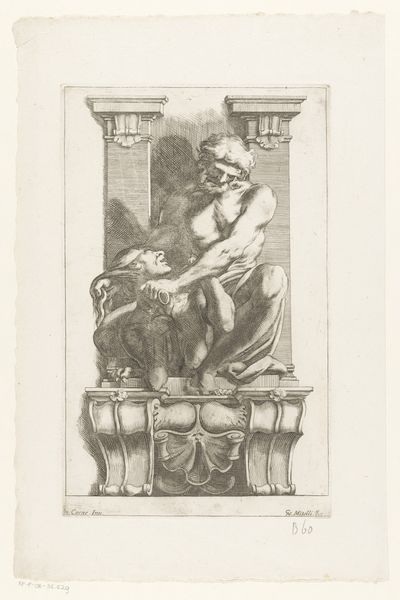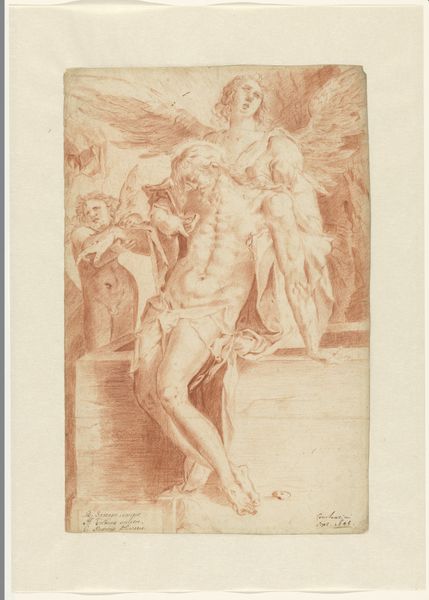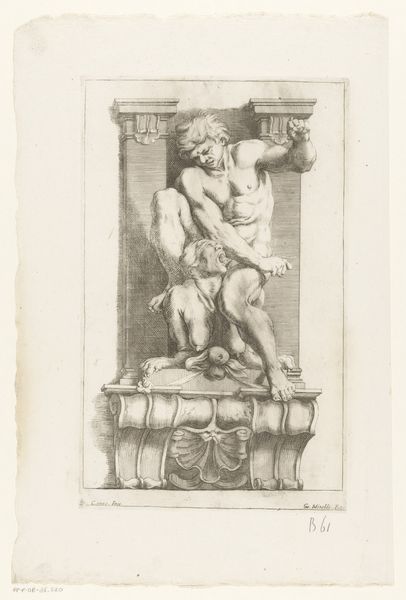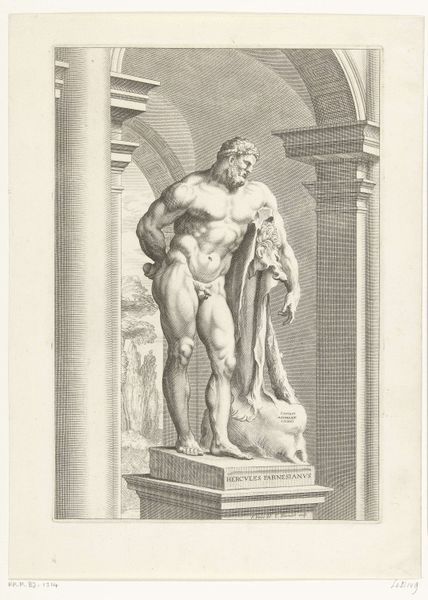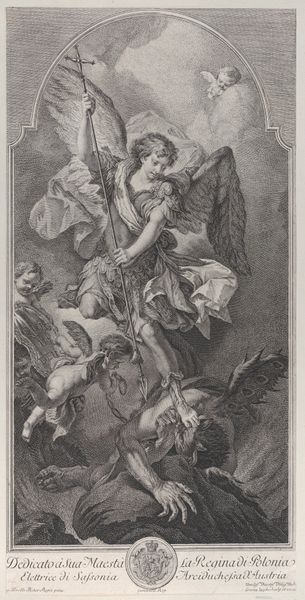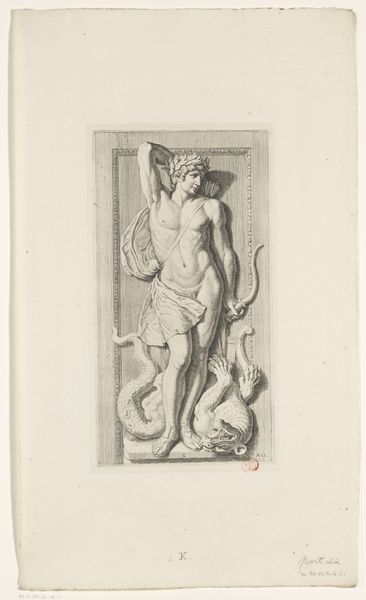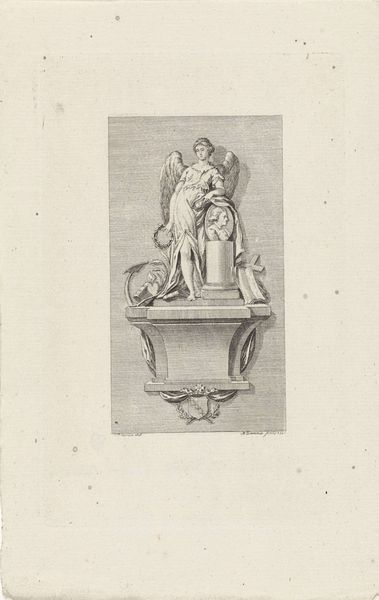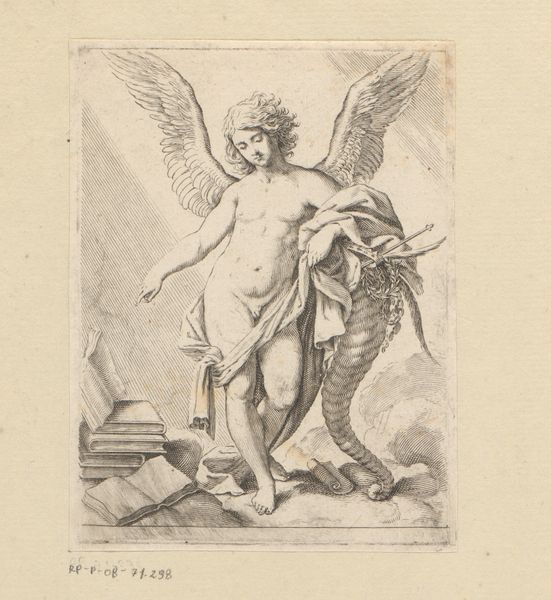
Standing male angel holding an empty bowl and looking down; allegory of Winter; after a bas-relief on the Fontaine des Quatre-Saisons (Paris) 1745 - 1800
0:00
0:00
drawing, print
#
pencil drawn
#
drawing
#
amateur sketch
#
toned paper
#
light pencil work
#
quirky sketch
# print
#
pencil sketch
#
incomplete sketchy
#
personal sketchbook
#
pencil drawing
#
pencil work
#
angel
Dimensions: Sheet (trimmed): 10 13/16 in. × 8 in. (27.5 × 20.3 cm)
Copyright: Public Domain
This engraving by an anonymous artist depicts a sculpture of Winter, after a bas-relief on the Fontaine des Quatre-Saisons in Paris. Completed in 1739, the fountain was commissioned to provide water to the city's inhabitants, but also to celebrate the Bourbon monarchy under Louis XV. This print isolates one element of the fountain, a winged male figure who represents Winter. He holds an empty bowl, a reminder of the barrenness of the season. In 18th-century France, public art like this reinforced social hierarchies, with allegorical figures embodying ideals of beauty, strength, and order. Yet, the fountain itself was controversial, criticized for its excessive scale and cost. By studying archival documents, we can understand how art functioned within specific institutional and social contexts, reflecting and shaping the values of its time. The interpretation of art is never fixed, but evolves as we uncover the complex layers of history embedded within it.
Comments
No comments
Be the first to comment and join the conversation on the ultimate creative platform.
